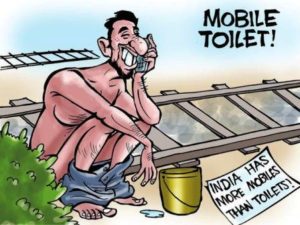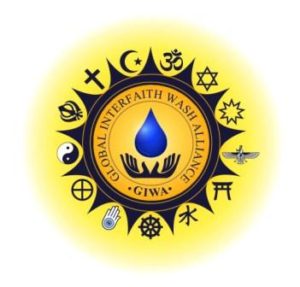Bihar fares poorly in terms of Water, sanitation, and Hygiene (WASH) indicators.
Only 0.79 per cent of the state’s villages are open-defecation free (ODF), under the Union Government’s flagship campaign Swachh Bharat Mission. while Bihar’s coverage under the National Rural Drinking Water Programme is much better at 46.64 per cent, but it is much lower than the national average.
Poor quality of water and inaccessibility to sanitation services adversely affect the health and wellbeing of people – with children being the worst affected.
The UNICEF in Bihar has said that the situation is ‘improving’ with the issue being given high priority by Bihar Chief Minister Nitish Kumar. Two of the seven resolves (Saat Nishchay) of the Chief Minister focus on water and sanitation viz Har Ghar Nal ka Jal ( Tap water in every house) and Ghar ka Samman – Shauchalaya Nirman ( Toilet Construction: Honour of House) and the progress of flagship schemes on water and sanitation are being closely reviewed by the CM’s office.
Global Interface Was Aliance (GIWA) Bihar Summit: Unicef maintains that ‘almost 99 per cent’ of people in India subscribe to one religion or the other (probably a debatable statistic) but what isn’t open to debate is that faith-leaders have an alarmingly huge role in influencing the mindsets and behaviours of the rural population and a sizeable number of the middle class as well.
Open defecation, reluctance to clean up waste near the homes or to build a toilet within the house; and other unhygienic things many Indians do are somehow linked with so-called religious and cultural practices. The key challenge in ensuring ‘sanitation for all’ lies in changing mind-sets and behaviour of people – especially related to use of toilets, handwashing and keeping the environment clean. Now that’s where it is hoped that religious leaders will make use of their pulpits, and persuade the faithful to adopt a bit of scientific health practices.
The GIWA Bihar Chapter, it is hoped, will add to the ongoing sanitation efforts in the state, and influence progress in achieving the Water and Sanitation goal. The GIWA Bihar Summit during Prakashotsav will help ‘amplify’ the reach of WASH messages not just in Bihar but across the country, leading to stronger commitment and action for a clean, safe healthy and harmonious world. 
About GIWA
The Global Interfaith WASH Alliance (GIWA) is the world’s first platform that brings together leaders from different religions/faiths with the mission of ensuring that everyone around the globe has access to clean, healthy and sustainable Water, Sanitation and Hygiene. GIWA was launched at UNICEF headquarters in 2013, with support from the Government of Netherlands and USAID, while the India chapter was launched in 2014. Since its inception, GIWA has been instrumental in bringing together numerous stakeholders for the cause of WASH through awareness, advocacy and action.
- Newsnet desk!


